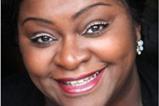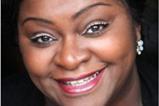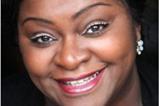Tracie Jolliff on how it is time for a new conversation about inclusion in the NHS
Referred to as the love hormone, oxytocin has great social effects and makes women more maternal, increasing their ability to make positive human connections.
A generous spattering of oxytocin in the workplace would certainly bring clear benefits to the inclusion agenda, as lack of trust, poor quality relationships and connections are underpinning reasons as to why discrimination, bullying and harassment persist despite multiple activities at many levels to produce change.
Growing compassionate and inclusive leadership
According to Jon Ronson’s book The Psychopath Test, a feature of psychopathy is a lack of empathy. Empathy comes in two forms: cognitive, which is about being able to understand the emotional state of another, and emotional, which is about being able to respond appropriately to another’s emotional state. The latter is essential for compassion.
Data from the WRES and the NHS Staff Survey shows that certain groups consistently experience higher levels of bullying, harassment and discrimination (LGBT+, disability and BAME). This would suggest that lower levels of both cognitive and emotional empathy are being exhibited when it comes to working with someone who did not “look” like them, whether on grounds of disability, race, or sexuality or gender.
It’s difficult to imagine that someone on the receiving end of these unpleasant behaviours would not be giving out signals as to the painful impact this was having, yet these signals are clearly not registering. Leaders cannot claim to be compassionate if they’re not inclusive; a lack of empathy amounts to a lack of compassion.
Paying attention to what matters
Through the work of Building Leadership for Inclusion led by the NHS Leadership Academy, it’s clear that to create strategies that lead to more inclusive cultures, there’s a need to put the voices and lived experiences of those at the sharp end of discrimination at the heart of effective change-making.
There is a need to have deeper conversations about how barriers to this can be better understood, when for the most part, the health and care workforce attracts people with elevated levels of empathy. We do, after all, deliver a “people service” which has at its heart, care.
What’s clear from our work is that leadership development needs to radically change if leaders are to be equipped with the necessary capabilities.
What needs to happen next?
I’m often asked what the work of inclusion needs to be going forward if we’re to address the Snowy White Peaks of the NHS. I’ll answer this question using my own lived experience as a black woman:
- Work on the self. Creating the space to hold up the mirror to self and ask “what assumptions and norms do I bring to this work, that before now have remained relatively unexplored?” This requires the willingness and courage to let go of what we think we know, and accept that others, who are not like you, have different experiences because of their difference
- We need more white colleagues to do this work and speak to other white people about why simply assuming that they’re not racist isn’t sufficient for racial inclusion to result
- “Whiteness” in inclusion work is a mindset that needs to be explored before anti-racist practice can result. Most “white” leaders are principled and well-meaning, but if you’ve done little work to challenge your own ideas and assumptions, you’re probably creating more obstacles than effective strategies for inclusive change
- Male colleagues, the work of inclusion for women isn’t done. How you engage with women in the workplace sets the tone for others. If you haven’t taken the time to examine what patriarchy or feminism is, considered how you and others have been gendered through your upbringing, how women’s experiences at work may differ from your own and what happens to these experiences when women have other overlapping identities (BAME, LGBT+, disability), you most likely won’t be leading inclusively
Those in positions of power and influence have the greatest levels of responsibility in doing this, and the good news is, the NHS Leadership Academy can support you in this work.
Don’t be a bystander
Francis and many other reports tell us that corporate abuses of power and discrimination often happen in the presence of bystanders, and even when there are whistleblowers, the toxic power of fear serves to silence good people.
I try to deliberately and intentionally practice courage, deciding each day to speak out about something that I think is worth standing for. I take my cues from people like Maya Angelou, Michelle Obama and Bell Hooks – women who look like me. Although my role models for courageous acts aren’t solely defined by their skin colour or gender, there’s a strength that I garner from those who know the full implication of what it means to live a life at the intersection of race and gender.
It’s time for a new conversation about inclusion, which includes questions like:
1. What is it like being on the receiving end of me where inclusion is concerned?
2. What privileges have I taken for granted and assumed that others share?
3. How do I stand up for inclusion and how can I exercise courage in this space?
4. How am I making sense of the lived experiences of people who aren’t like me?
5. What do I need to learn so that my leadership of inclusion is enhanced?
Radical candour can begin a process of shifting mindsets and in turn behaviours, creating an enabling environment for greater levels of empathy and connection. For every hard-won human right, someone has had to speak up and swim against the angry tide of conformity.
After sitting down during the US national anthem in 2016, Colin Kaepernick said:
“I’m not going to stand up to show pride in a flag for a country that oppresses black people and people of colour. To me, this is bigger than football and it would be selfish on my part to look the other way. There are bodies in the street and people getting paid leave and getting away with murder.”
Social justice is not a given, it’s a space that needs to be claimed. If compassionate and inclusive leadership are to become the norm, it’s you and I that need to step in and secure this claim.
































1 Readers' comment